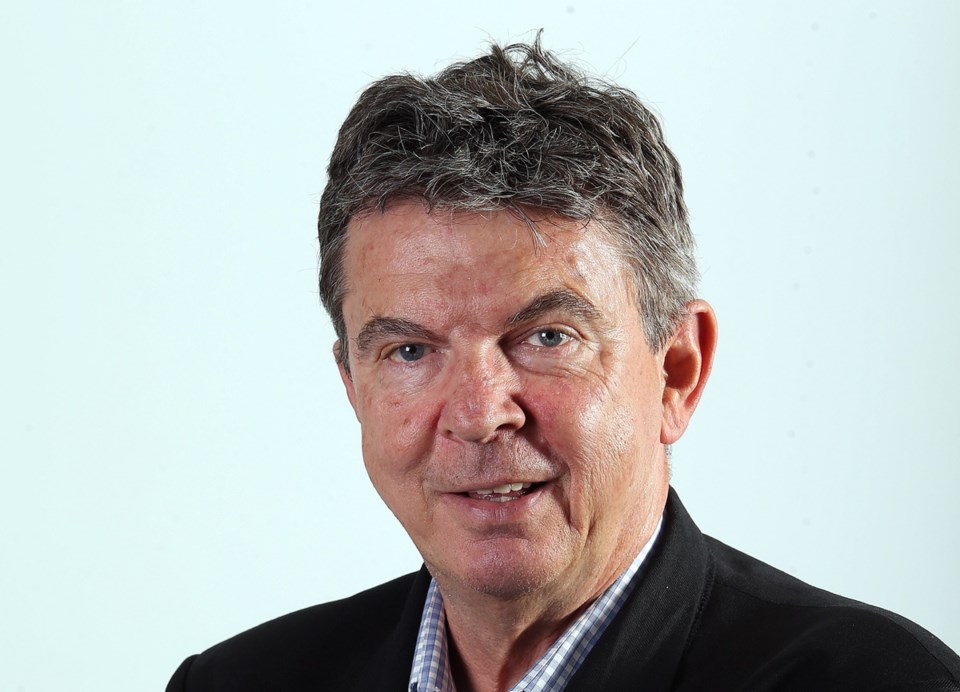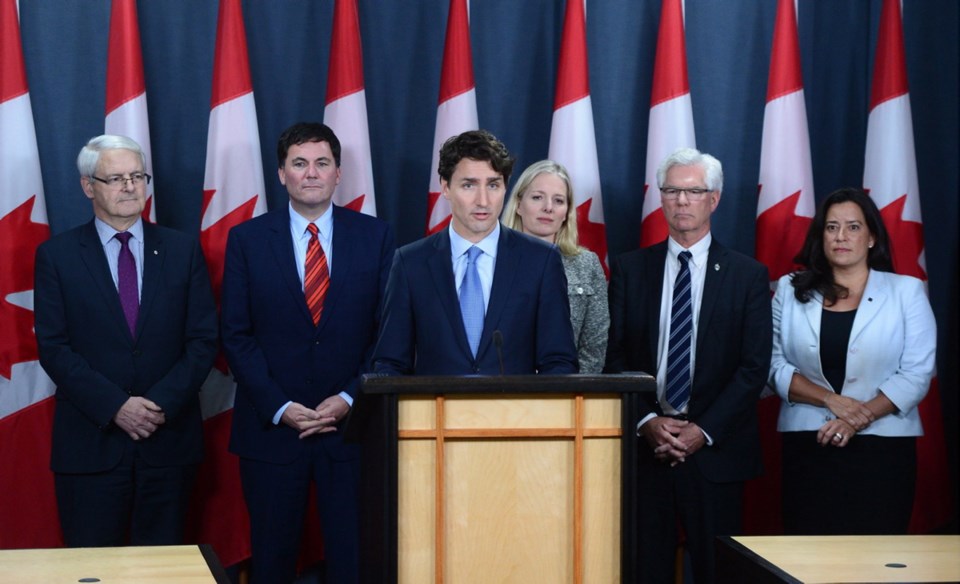 Crossing the Rockies is engineering child’s play when it comes to building an oil pipeline. The real challenge is navigating the political differences on either side of the mountains.
Crossing the Rockies is engineering child’s play when it comes to building an oil pipeline. The real challenge is navigating the political differences on either side of the mountains.
Prime Minister Justin Trudeau presented his effort on that front Tuesday, and it’s the biggest move of his 55-week-old government.
He devised a four-part compromise, keyed to Alberta’s promise to cap emissions from the oilsands, which drives the need for the new lines in the first place.
The elements include:
• A rejection of the Northern Gateway proposal from Alberta to Kitimat. Piping crude oil through the northern wilderness, past the Great Bear Rainforest and into a challenging west coast inlet looked increasingly absurd over the 12-year history of the project. The Federal Court earlier threw it for a loss with a ruling that First Nations consultation was invalid. Trudeau put the concept out of its misery Tuesday.
• Just for good measure, his government announced a moratorium on “crude and persistent oil tankers along British Columbia’s north coast,” with details to come. They’ll be banned from the Alaska border to the northern tip of Vancouver Island, which puts half of B.C. off limits to pipelines for the foreseeable future.
• The Line 3 Replacement, also an Enbridge project, from Alberta to Wisconsin got a green light. It’s a less-controversial feeder into the U.S. system.
• Kinder Morgan’s Trans Mountain expansion project from Edmonton to Burnaby got full and final approval. That $6.8-billion project twins an existing line and will triple the current flow to almost 900,000 barrels a day, available for shipment to Pacific markets.
As the fiery denunciations from environmentally worried B.C. interests start pouring in, it’s worth noting the economic backdrop to that decision, because it has a lot to do with the differing political attitudes in B.C. and Alberta to the pipeline. They were contrasted vividly in matching quarterly reports from both governments one day apart.
Here’s a brief comparison — B.C. hiked its projected surplus for the current year to $2.2 billion.
Alberta is expecting a $10.8-billion operating deficit this year.
B.C. has lowered one major component of overall debt by $2 billion and reduced direct operating debt markedly. The government now says it borrows only to build capital projects.
Alberta will borrow $6.4 billion this year just to help cover operating expenses.
B.C. will balance the budget for the fifth year in a row next February.
Alberta is forecasting a balanced budget by 2024.
Contrasting quotes from finance ministers: “While it’s too soon to say Alberta’s economy turned a corner, there are some hopeful signs that it’s stabilizing.” — Joe Ceci.
“B.C. continues to outperform the country in economic growth.” — Mike de Jong.
In short, Alberta has had two ravaging years of recession brought on by the oil-price drop and is desperately in need of a boost.
B.C.’s economy has led the country, to the point where one of the major problems (housing affordability) is prosperity-induced. It’s also to the point where the huge economic benefits of a multibillion-dollar project don’t factor as highly. People are generally doing so well they can afford to put their environmental worries ahead of their economic concerns.
Even though B.C. benefits from Alberta’s loss in terms of people moving west and helping drive continued economic growth, de Jong said Tuesday: ‘‘What’s happening in Alberta is not good for Alberta and not good for Canada.”
The federal government has approved two pipelines that could ease some of Alberta’s pain (and reduce rail tanker traffic). But it’s bought itself a huge argument on the south coast. Anticipating that, Trudeau again cited his B.C. roots and said: “If I thought this project was unsafe for the B.C. coast, I would reject it.”
That’s hardly going to be enough to satisfy the enraged opposition to pipelines, tankers and oil itself. A sampling from the first half-hour: “Blatant betrayal … Cynical … B.C. has been made a sacrifice zone … incoherent … Trudeau has picked a fight.”
The next political move will be Premier Christy Clark’s decision on whether her five conditions for provincial approval have been met. They have, or will be. It’s just a matter of whether they’ll be checked off before next spring’s election, or after.



